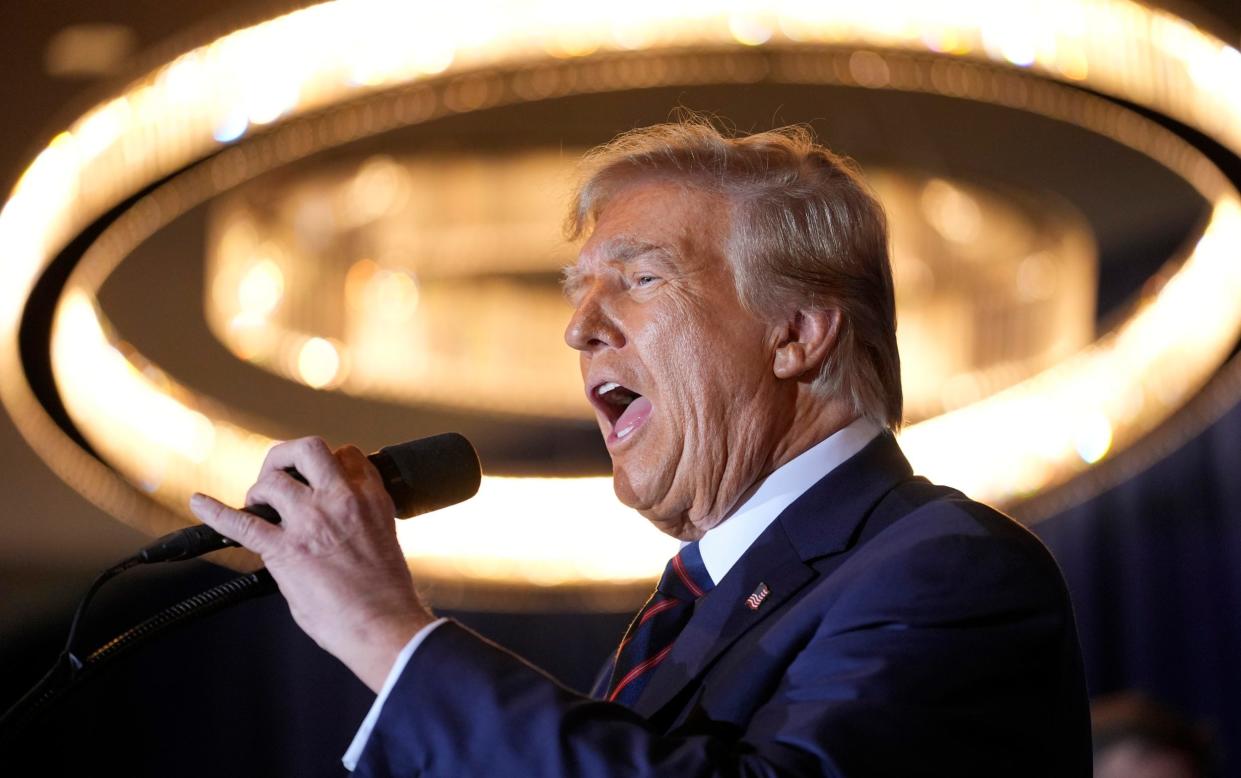Trump has captured the new conservative zeitgeist

- Oops!Something went wrong.Please try again later.
- Oops!Something went wrong.Please try again later.
Have you ever had the feeling that it doesn’t matter who you vote for, because nothing ever changes? That certain policies get implemented even when they are unpopular? That “they”, “the establishment”, “the elite” know how things should be done?
It’s easy to rail against the elite, but rarer to get actual evidence that they really do think differently from the rest of us. This month we got that, in the form of a Rasmussen poll in America, picked up here by Toby Young’s Daily Sceptic website. This poll specifically looked at the opinions of the elite – defined as people with a postgrad degree, earning $150,000 annually, and living in dense cities. That’s about 1 per cent of Americans.
The results are pretty striking. Nearly half of the elite think there is “too much freedom” in America, while only 16 per cent of Americans as a whole think that. Seventy-seven per cent support rationing of energy and meat (all Americans: 28 per cent). Well over two thirds would ban gas stoves and petrol cars, and over half would ban non-essential air travel and air conditioning (all Americans: 13 and 25 per cent). Seventy per cent of the elite trust the government, more than twice as many as ordinary Americans. And finally, though hardly surprisingly, while only 40 per cent of Americans approve of President Biden, 84 per cent of the elite do.
Look no further for what has driven Donald Trump to all but tying up the Republican presidential nomination this week. He’s appealing to those many Americans who think that the people in charge of the country just don’t share their aspirations and are not in touch with the realities of their lives.
This poll suggests they aren’t wrong to think that. To outsiders, one of the most baffling features of the past year is the way that Trump became more popular as the number of court cases against him increased. Yet if you see the governing establishment as wholly different from you, motivated by quite different values, you are more likely to see Trump as a genuine victim of that system, and hence as the only real opportunity to change it.
However things play out for Trump in the months to come, and I certainly see him as a distinctly mixed candidate, it’s obvious from his campaign that technocracy is just not a winning proposition on the Right. Instead, the rocket motor comes from anti-system politics, populism if you will, and from fundamentals like immigration control.
Nikki Haley is a pretty good traditional Republican figure – a believer in free markets at home and in American leadership abroad. In the past she might have won. But Republican voters now want something different, not a more competent version of the past: they think that’s what got them where they are now.
It’s also clear that populism is more than just policy. Ron DeSantis offered Trumpism without Trump. His record in Florida – on resisting lockdowns and masks, on putting parents back in charge of education, of resisting the diversity and “woke” agenda – is almost entirely admirable. Only four states out of 50 have a lower tax burden. Three hundred thousand people moved to Florida just last year. Yet none of this was enough at the national level. Somehow he didn’t cut through and didn’t convince that he had what it took to be president. In short, personality matters.
Earnest political analysts tend to think it’s unreasonable to vote on that basis. I don’t really agree. Yes, obviously Republicans want a Republican, but they also want the kind of Republican who can deliver change rather than give in to resistance.
So they want someone who is prepared to kick around the bureaucracies, to appeal over their heads to the public, and who doesn’t see it as a killer argument when someone says “well we have always done it like this” or “a court might disagree with you”. Perhaps Republican voters are right to sense that Trump’s very brashness, his indifference to convention, is precisely what may make him able to break the mould and make things happen.
And therefore the ability to connect with the general public is vital. If you are uncomfortable with actual voters, like both Haley and DeSantis in different ways, then you are unlikely to cut it in democratic politics. Trump’s worst enemies don’t deny his ability here. Indeed, that is why they fear him. His humour, his one-liners, cheap though they are sometimes, his ability to capture the essence of an issue – this is vital in a political world where you need to grab people’s attention. I’d love to hear it if he were ever to come up with a nickname for Keir Starmer.
All these things come together in one thing: leadership, the ability to articulate a vision, to show where you want to take the country, and to capture it in ways people can readily understand. Some people, like Trump, have it, and some people don’t.
Oh, and there is one other thing we can learn from American politics. Don’t elect a Leftist who’s claiming to be a moderate. You just might find they turn out to be a woke diversity obsessional, a believer in open borders, an open-the-spending-taps socialist, after all, when it’s too late.

